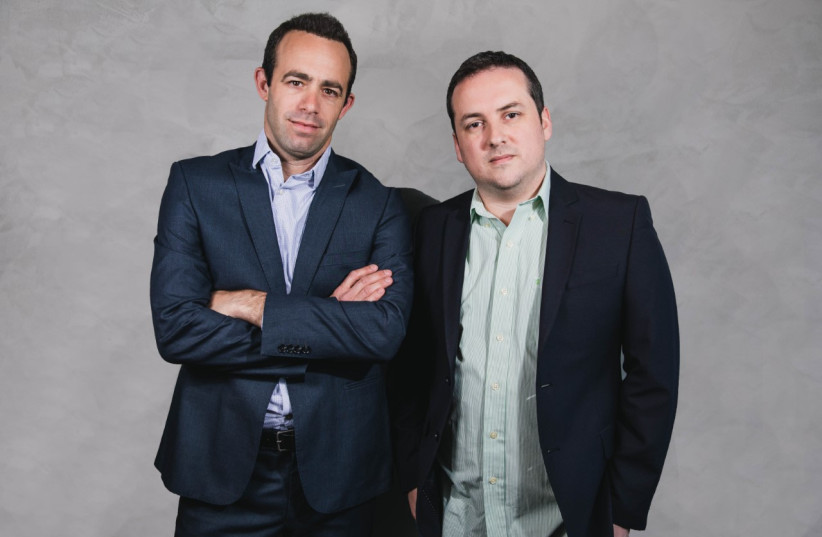The widespread use of plastic is devastating to the environment, but luckily there are a few Israeli companies who are hard at work developing alternatives to the material that can be produced with less climate-damaging means and recycled much more efficiently.
<br>The problem with plastic
Traditional plastics have been in use for the better part of the last century, and since their introduction to general consumer markets in the 1950s, over 9.2 billion tonnes of plastics have been produced to date, according to the UN Environment Programme. A vast amount of that plastic is non-biodegradable, and can take hundreds of years to decompose in landfills (which currently house about 79% of all plastic produced).
“Not many people know that in order to produce plastic, we need to use oil, which is a fossil fuel. When we use that oil, it [produces] greenhouse gasses,” explained Meital Peleg Mizrachi, a Consumption and Environmental Justice researcher in the Department of Public Policy at Tel Aviv University.
Besides the nebulous threat of looming climate impact, the use of traditional plastics also has very practical health implications. “It creates an enormous amount of waste all over the world, which then degrades into microplastics. We consume those microplastics when we drink water from the sea — like we do in Israel — or when we eat fish, and they are very bad for our health,” Peleg Mizrahi said.
“Not many people know that in order to produce plastic, we need to use oil, which is a fossil fuel. When we use that oil, it [produces] greenhouse gasses."
Meital Peleg Mizrachi
Recent years have seen the rise of PLA, a more “climate-friendly” plastic polymer that uses over 60% less energy to produce, creates nearly 70% less greenhouse gasses than its predecessors, and is biodegradable — in industrial composting conditions. Don’t read this and start throwing it in your backyard composter.

Of course, no technology is perfect, and one of the primary issues with PLA is that it is primarily produced from lactic acid derived from corn and sugarcane. That means that in order to produce the material, a significant amount of resources need to be spent on growing the organic products that are then converted into the PLA itself — if only there was a way to convert already-used and discarded resources into PLA… like, say, food scraps?
<br>TripleW converts food scraps into plastic
TripleW is an Israeli start-up focused on developing PLA’s fundamental building block, lactic acid, using discarded food scraps.
“We’ve overcome all the hurdles and challenges in order to produce this material from food waste instead of food crops,” boasted TripleW CEO and co-founder Tal Shapira, in an interview with The Jerusalem Post.
After years of research, development and scaling, Shapira and fellow co-founder and COO Amir Oranim have created technology which sits in waste management plants, where it upcycles sorted food waste via a lactic acid production method centered around everyone’s favorite metabolic process: fermentation.
“We have our own unique microorganisms that ferment the food waste and produce the lactic acid, and then we have several patented recovery and purification steps that can yield a very clean product,” he explained.
Their lactic acid’s purity is only one of several benefits Shapira was excited to list: “It's clean enough that you can sell it on the market, it's chemically identical to lactic acid made out of food crops and we have the extra benefit of our product being 100%, renewable carbon,” he said, also noting that “We already have the regulatory approvals in place, so it's a generic product.”
The fact that TripleW’s lactic acid is a generic product is one of the most critical points in the story: it means that PLA manufacturers now have the ability to choose the climate-friendliest option without having to jump through hoops to get it. Those manufacturers are, in theory, highly incentivized to do so, as it would boost their end products’ appeal to consumers looking for the greenest alternative.
“TripleW has been significantly recognized by waste management partners and existing biochemicals producers, and we're going to produce this product on a major industrial scale. It's happening,” he noted.
As well, investors have recognized the value of TripleW’s offering: to date the company has raised $19 million in funding, and are heading toward another round in the very near future. “It's going to be a round that would help us grow the company, and take us to the next step, which is major production of lactic acid from food waste in Europe and the US,” said Shapira.
Considering the company’s value proposition, the positive attention from investors and industry players is likely well-placed.
“The product is 100% food waste, and without TripleW, that renewable carbon would have become greenhouse gas emissions in the atmosphere. So for every ton of product that we make, we sequester a significant amount of greenhouse gas emissions within that product,” Shapira said. “Our technology can really bring down [food waste emissions], and put those greenhouse gas emitters into very useful products in your supermarket aisle.”
